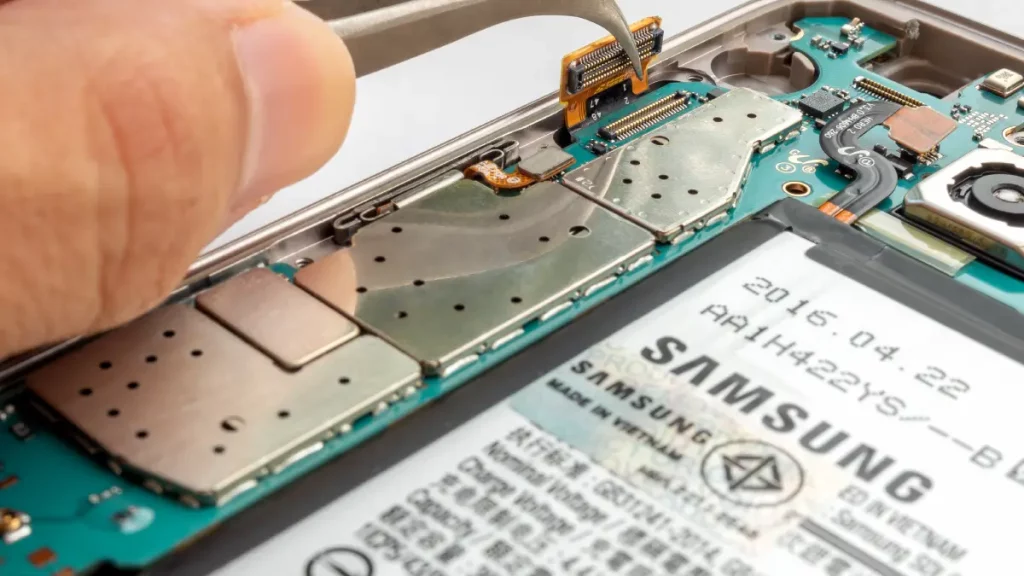Samsung Electronics Company charted plans for a USD 17 billion semiconductor plant in the United States that will include over 2,000 jobs, broaden the South Korean technology mogul’s baseline in Texas, and underpin its role as a crucial supplier in the international manufacturing supply chain.
Samsung Electronics Company expands baseline in Texas
US Commerce Secretary Gina Raimondo stated on Tuesday that the surging domestic production of semiconductor chips are essential for national and economic security. White House officials also stated that they received the investment with open hearts, saying that it would aid in the protection of their supply chains and enhance domestic manufacturing and production processes.
The endeavour will birth over 2,000 jobs, Texas Governor Greg Abbott stated at a press meet declaring his strategies. Samsung Electronics Company also stated that the semiconductor plant would inversely birth thousands of extra jobs once it was fully operational. Abbott stated that the intimation of this facility expands far beyond the horizons of Texas. He said that it was going to impact the entire globe.
Samsung Electronics Company will construct this facility in Taylor, Texas, around 30 miles from Austin, where the firm has invested billions in an extensive complex that already inhabits over 3,000 employees and delivers some of the nation’s most eminent chips. The edifice of the new semiconductor plant is estimated to commence in H1 of 2022, and manufacturing will commence in H2 of 2024.
On 23rd November 2021 (Tuesday), Abbott flaunted Texas’s menial taxes and talent pool as crucial elements for technology firms and called the firm’s decision to invest in the state a testimony to the economic ecosystem that the country had built. Samsung Electronics Company is estimated to receive USD 3 billion in enticements from the USD 52 billion bill dubbed the CHIPS Act if it passes, Texas Senator John Cornyn stated on Tuesday.
Kinam Kim, an executive of Samsung Electronics Company, stated that the firm’s decision to establish itself in Texas was lodged on numerous factors, inclusive of the local talent pool, incentive programs, and the infrastructure stability offered by the country. The most crucial necessity for chip operations was a stable infrastructure and a stable supply of power. In the dawn of 2021, the cold wave in Texas obligated Samsung Electronics Company and other firms to initiate a brief hiatus in operations. However, Abbott sought out to assure business enterprises that power outages would not happen again, and that the state was now manufacturing more power than it was in early 2021.
The firm collaborates with the Taiwan Semiconductor Manufacturing Company (TSMC) to initiate significant investments in the United States of America. The new facilities further enhance Biden’s administration goal of upkeeping the production of new-fangled chips that are essential to the defence forces as well as to technological innovations like self-driving cars.
A universal shortage of chips in 2021 has uncovered disparities in the industry and encouraged governments from Tokyo to Brussels to court Samsung and TSMC. The two firms fabricate the world’s most cutting-edge chips for clients like Nvidia Corporation and Apple Incorporation.
Kim Sunwoo, an analyst at Meritz Securities, stated that Samsung’s new-fangled plant will help bridge the gap with TSMC’s manufacturing capacity by fabricating chips at the client’s home base. Sunwoo also stated that as the United States prioritized domestic chip production, the firm will be able to receive several benefits with its manufacturing base in Texas.
Neither the new-fangled Texas project nor TSMC’s USD 12 billion Arizona extension will obliterate chip shortages in a short tenure. However, their fabrication could establish the foundation for a future American-centric chip environment by enticing and training the constituent suppliers that archetypally emerge around such operations.
